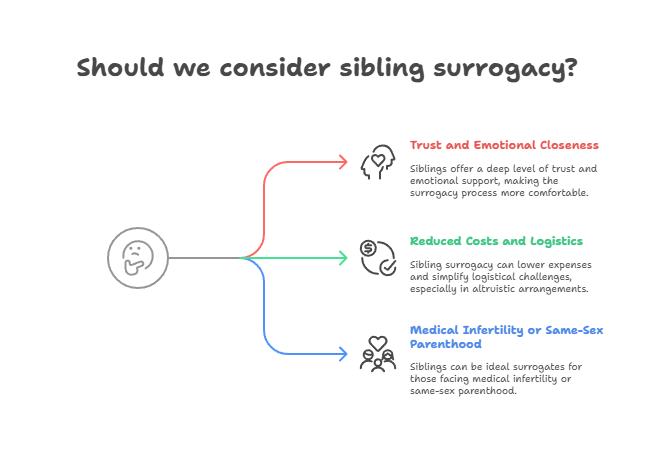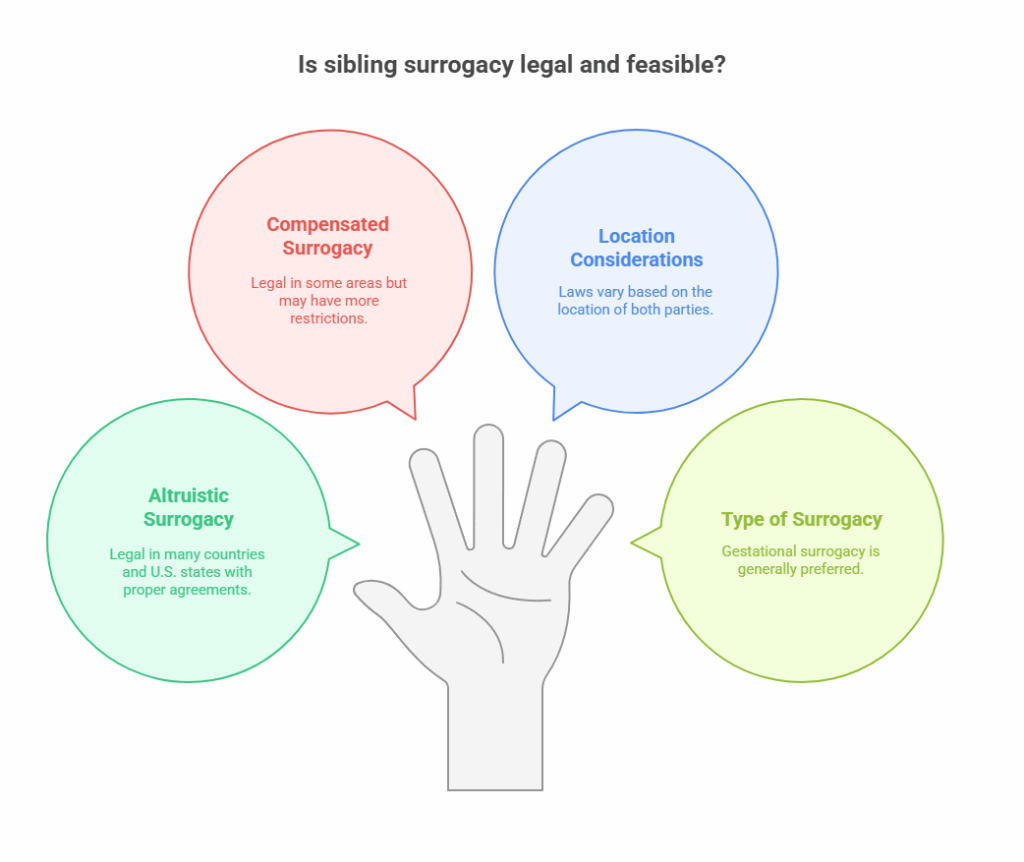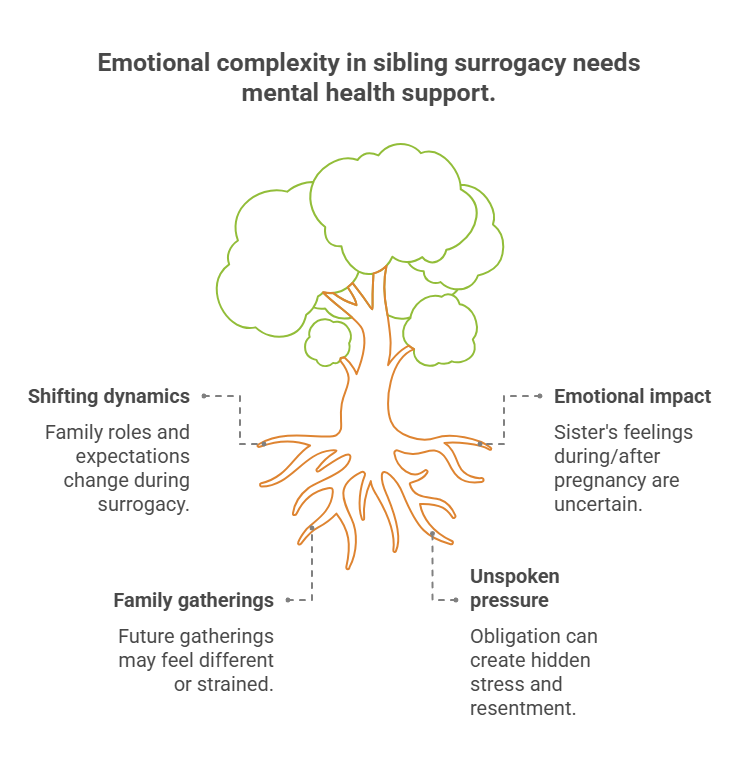Here’s What You Need to Know About Sibling Surrogacy
Short Answer:
Yes, a sibling can be a surrogate — and in many cases, it can be one of the most meaningful and trusted surrogacy arrangements. However, just like any other surrogacy journey, it requires thorough medical screening, legal protection, and emotional preparation to ensure it is successful for everyone involved.
1. Why Consider a Sibling as a Surrogate?
When people turn to surrogacy to build their family, trust and emotional closeness are crucial. Who could be more trusted than a sister, or even a sister-in-law, willing to carry a baby for you?
Whether it’s due to medical infertility, same-sex parenthood, or personal choice, many intended parents feel more emotionally comfortable working with someone they know deeply — like a sibling — rather than a stranger.
Sibling surrogacy can also reduce costs and logistical hurdles, especially in altruistic arrangements.
More: How Much Does Surrogacy Cost with Insurance in Texas?

2. Is It Legal for a Sibling to Be a Surrogate?
In most surrogacy-friendly countries and U.S. states, it is absolutely legal for a sibling to act as a surrogate. In fact, many agencies and clinics have helped intended parents complete successful sibling surrogacies.
The laws will vary depending on:
- Whether the surrogacy is altruistic (no compensation beyond expenses) or compensated
- The location of both the surrogate and the intended parents
- The type of surrogacy (gestational is usually preferred over traditional)
For example, Canada, the UK, and many U.S. states allow altruistic sibling surrogacy with proper legal agreements in place.
More: How Hard Is It to Find a Surrogate?

3. Medical Requirements Still Apply
Even though you trust your sister, she’ll still need to pass all standard medical screenings. Clinics will evaluate(Surrogate Eligibility Quiz):
- Age (typically 19 – 42 years old)
- Physical and reproductive health
- Past pregnancy history
- Lifestyle factors (BMI, non-smoking, etc.)
She will also need to undergo IVF procedures, including hormone injections and embryo transfer — even if the arrangement is between family members.
More: How to Be a Surrogate for a Friend: What You Need to Know
4. Emotional and Psychological Considerations
Sibling surrogacy can be a beautiful journey, but it also comes with emotional complexity. Family dynamics, expectations, and roles can shift. For example:
- How will your sister feel during and after pregnancy?
- Will future family gatherings feel different?
- Is there unspoken pressure or obligation?
That’s why all parties — intended parents and the sibling surrogate — should undergo mental health evaluations and counseling before and during the journey. A good agency or fertility clinic will support this process.
More: Finding a Surrogate Mother in Houston: A Step-by-Step Guide

5. A Legal Agreement Is Still Essential
No matter how close you are, don’t skip the contract.
A sibling surrogate must sign a surrogacy agreement, just like any other surrogate. This legal document should cover:
- Parental rights
- Financial terms (even if no compensation is provided)
- Medical decision-making
- Insurance, birth plans, and contingency clauses
Each party should have their own attorney to avoid conflicts of interest and to ensure that everyone’s rights are protected. Courts are more likely to uphold agreements that were created fairly and professionally.

6. Ethical and Cultural Considerations
In some cultures, asking a sibling to be a surrogate may raise ethical questions — especially around coercion or family pressure. It’s essential that:
- The sibling is fully consenting
- There is no guilt, manipulation, or emotional obligation
- Both sides feel empowered and respected
Open communication and ethical guidance from counselors or religious advisors (if needed) can help.
7. Real-Life Inspiration
There are many real-life examples of siblings stepping up to be surrogates. Sisters have helped their brothers and sisters become parents, and even brothers’ wives (sisters-in-law) have acted as gestational carriers.
One powerful example is from the U.S., where a woman carried twins for her sister after multiple failed IVF attempts — strengthening their bond and fulfilling a dream of parenthood.
✅ Conclusion: Yes, It’s Possible — and Often Beautiful
Siblings can absolutely be surrogates — and in many cases, it creates a deeply connected and meaningful journey. But it’s important to treat the process with the same level of care, legality, and professionalism as any other surrogacy path.
Whether you’re considering asking your sister or being a surrogate for a sibling, remember:
Love is the foundation — but structure is what makes the journey safe and successful.




